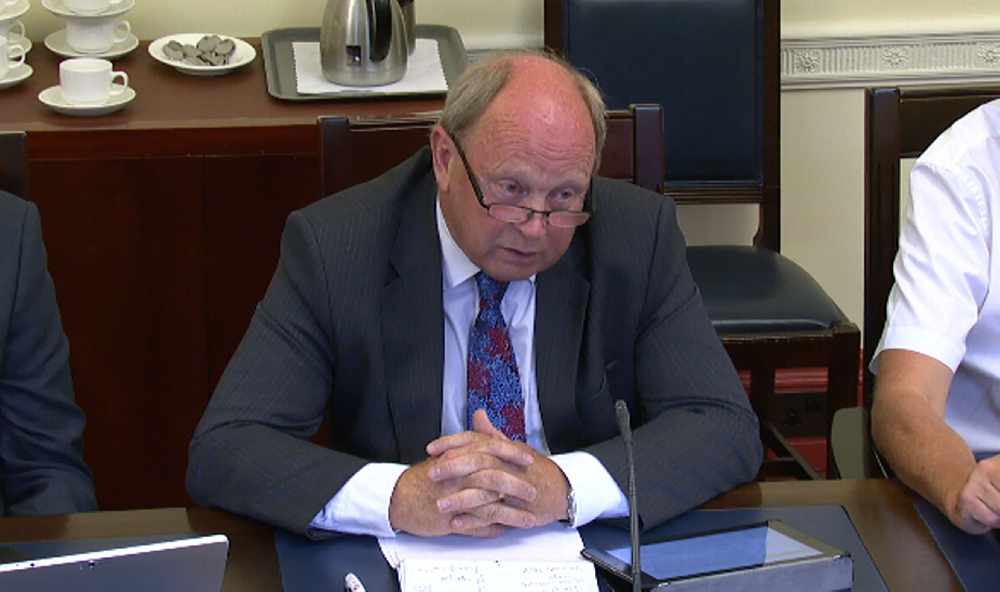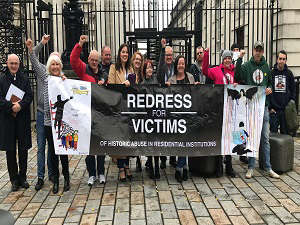
By Q Radio News
Assembly members have supported a call for human rights experts to advise on a legislative bid to repeal an aspect of Northern Ireland’s recently liberalised abortion laws.
The Private Member’s Bill in the name of DUP MLA Paul Givan targets a specific provision within the region’s abortion regulations that allows late-term terminations in cases of serious non-fatal disabilities.
Alliance MLA Paula Bradshaw tabled a motion in the Assembly today seeking to ensure that the Northern Ireland Human Rights Commission was consulted about the proposed law change.
Ms Bradshaw said it was important to examine how the Bill proposed to balance the issues of disability rights and gender equality:

(Paula Bradshaw speaking in the Assembly today)
Under Assembly rules, only two speakers were allowed to address the chamber on the motion – the proposer and one opponent.
TUV leader Jim Allister, who opposed the motion, branded it “empty grandstanding”, highlighting that it was already established practice to consult the commission on such Bills:

(Jim Allister speaking in the Assembly today)
Mr Givan introduced his Bill in the Assembly last month in a short procedural stage that only lasted a few minutes. Substantive debate on the proposal will take place at the second Assembly stage.
Northern Ireland’s previously restrictive abortion laws were changed by MPs at Westminster in 2019 at a time when the Stormont administration was collapsed.
The laws allow abortion in all circumstances up to 12 weeks. Terminations are permitted up to 24 weeks when there is a risk to the woman’s physical or mental health.
There is no time limit in cases of fatal foetal abnormality or when there has been a diagnosis of a serious physical or mental impairment that would cause a serious disability.
Abortions post 24 weeks in those circumstances are extremely rare.

(DUP's Paul Givan)
Mr Givan’s move is being backed by disability rights campaign group Don’t Screen Us Out, which claims the law is discriminatory and will allow abortions without time limit for conditions such as Down’s syndrome or cleft palate.
Ms Bradshaw insisted her motion was not a commentary on the purpose of Mr Givan’s proposal.
“This motion is not a commentary on the intention of the Bill, which provides for a welcomed discussion on how best to ensure the ongoing support for women to take babies to term if available, as well as around the urgent need to stop the perpetuation of stigma around conditions such as Down’s syndrome,” she said.
“Rather, it is a request for clarity on the best way to ensure that disability rights and gender equality are created and advanced in legislation and public policy as part of the same internationally recognised human rights standards.”
Mr Allister claimed it was “ironic” that Ms Bradshaw invoked the issue of human rights for a Bill related to abortion.
“There is such a compelling irony in someone rising in his House to invoke the cause of human rights in order to protect the bringing of death to the womb,” he said.
The TUV leader said the motion would make no difference to how the Bill would proceed.
“Every Bill that comes to this House, particularly one of this nature, as of right and of necessity, will go to the Northern Ireland Human Rights Commission for their views as a consultee,” he said.
“So here we have a motion, demanding that something that will inevitably have to happen anyway should be done. It really is such empty grandstanding to bring a motion such as this.”
The motion passed by way of an oral vote without the need to proceed to a formal division in the Assembly.



 Government announces Stormont Brake will not be pulled over change of EU law
Government announces Stormont Brake will not be pulled over change of EU law
 A man assaulted with hammer during robbery in South Belfast
A man assaulted with hammer during robbery in South Belfast
 Finance Minister makes 20-month Civil Service pay offer
Finance Minister makes 20-month Civil Service pay offer
 Firefighters tackle large fire at Coleraine recycling plant
Firefighters tackle large fire at Coleraine recycling plant
 Institutional abuse survivors urged to come forward before deadline passes
Institutional abuse survivors urged to come forward before deadline passes